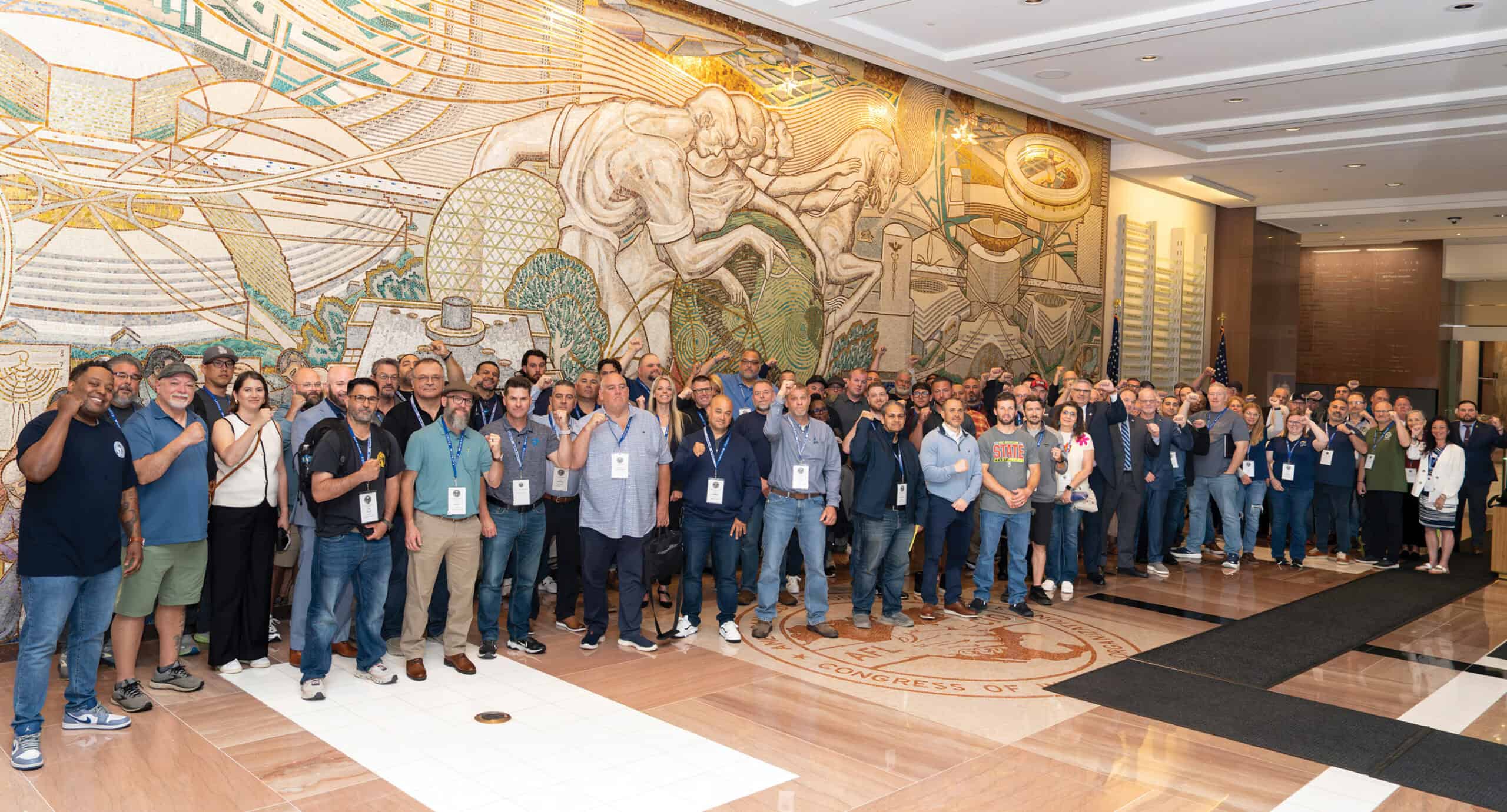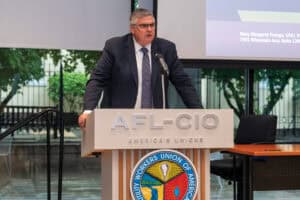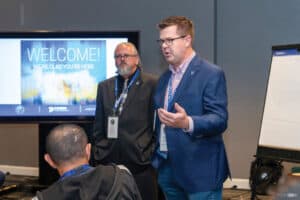 On May 13–14, for the first time ever, the Utility Workers Union of America held a Leadership Conference, hosted in Washington, DC. Over 70 leaders from 30 different locals came together for two full days of learning, sharing, and growth. It was a powerful moment — not born of tradition, but of necessity. You told us what you needed, and we listened.
On May 13–14, for the first time ever, the Utility Workers Union of America held a Leadership Conference, hosted in Washington, DC. Over 70 leaders from 30 different locals came together for two full days of learning, sharing, and growth. It was a powerful moment — not born of tradition, but of necessity. You told us what you needed, and we listened.
 We designed the conference directly from the feedback we received during regional conferences, our National convention, and visits with local leadership, members, and staff across the country. We built the event to focus on what matters most: equipping local leaders with the skills and tools to serve their members effectively in today’s fast-changing environment. This event was hands-on, nuts-and-bolts training in leadership, organizing, compliance, bargaining, and communications, the very areas our locals said they needed most.
We designed the conference directly from the feedback we received during regional conferences, our National convention, and visits with local leadership, members, and staff across the country. We built the event to focus on what matters most: equipping local leaders with the skills and tools to serve their members effectively in today’s fast-changing environment. This event was hands-on, nuts-and-bolts training in leadership, organizing, compliance, bargaining, and communications, the very areas our locals said they needed most.
The conference marked a turning point. We prioritized personal mastery, diving deep into the real-world challenges our leaders face. From financial compliance and internal governance to organizing strategy and leadership style, our aim was to build confident, capable leaders ready to bring renewed energy and sharpened skills back to their locals.
Leadership transitions often happen quickly and unexpectedly. As veteran leaders retire, new ones step in — many with just a few years of experience. They may have bargained a contract or two but haven’t yet navigated compliance reporting, advanced organizing strategies, or high-level communications. That’s where this conference made a difference. Over two days, participants built a solid foundation in essential leadership skills and left with resources to continue their development.
We launched the conference in the historic Solidarity Room at the AFL-CIO. From the start, the sense of purpose was electric. We weren’t just there to talk — we came to work.
Intensive workshops were held on financial training, internal union governance, expanding leadership skills, contract bargaining, communications, organizing and government relations:
- Financial Training – Mary Margaret Prange, managing partner of Calibre Accounting (UWUA’s auditor), and Secretary-Treasurer Mike Coleman provided guidance on regulatory requirements and best practices to help locals remain compliant and fiscally responsible.
- Internal Union Governance – UWUA General Counsel David Radtke delivered a comprehensive overview of the Labor-Management Reporting and Disclosure Act (LMRDA). The session covered key topics including member rights, fair election procedures, fiduciary duties of union officials, and financial reporting obligations. Emphasis was placed on due process, internal free speech, and the importance of strict compliance.
- Expanding Leadership Skills – Priscilla Peloubet of the Power for America Training Trust facilitated a session exploring leadership styles, self-awareness, and effective communication — essential tools for understanding ourselves and the people we lead.
- Contract Bargaining – National Representatives Greg Adams and Les Wutka led a “Bargaining 101” session on the fundamentals of union negotiations. Topics included building effective bargaining teams, conducting thorough research, preparing detailed costing models, and crafting strong communication strategies. The session also addressed legal requirements such as mandatory notices, good-faith bargaining, and managing impasse situations.
- Communications Training – Communications Director Erin Bzymek discussed effective strategies for communicating union values to members and the public. The session highlighted the power of storytelling, digital tools such as email, websites, and social media, and included a brief media training on how to engage with reporters. Participants not only developed online communication goals but also walked away with draft social media plans tailored to their locals — ready to be put into action.
- Organizing Techniques – National Organizing Director Deirdre Brill, along with National Organizers J.J. Popio and Melissa Harter, shared strategies for internal capacity-building and engaging both union and non-union workers to support UWUA’s organizing goals.
- Government Relations Strategy – UWUA Government Affairs Director Lee Anderson presented an in-depth look at political advocacy, relationship-building with elected officials, and campaign finance. The session emphasized the importance of local-level engagement, including building relationships with state and local leaders, working with state federations and central labor councils, and establishing local PACs to maximize grassroots impact.
But the heart of this conference was leadership — what it means, how we show up, and how we connect with others. As we reminded attendees, a member’s experience with the UWUA is most often shaped not by the National office, but by you — the local leaders. You are the union. The way you lead and the way you engage with members define their understanding of what our union stands for.
 We know not every local could make it to DC. That’s why this is only the beginning. Based on overwhelmingly positive feedback, we’re committed to taking this training on the road — bringing it to every region in 2026 and beyond. We’re building something every local, big or small, can access. Every leader deserves the chance to grow and lead with confidence.
We know not every local could make it to DC. That’s why this is only the beginning. Based on overwhelmingly positive feedback, we’re committed to taking this training on the road — bringing it to every region in 2026 and beyond. We’re building something every local, big or small, can access. Every leader deserves the chance to grow and lead with confidence.
We also want to support our locals in sharing their stories. So many do amazing work — offering scholarships, giving back to communities, and engaging members — but these efforts don’t always connect back to the UWUA identity. We can and must do more to highlight the union’s impact at the local level.
This inaugural Leadership Conference was a major step forward. It proved that investing in our leaders means investing in our future. There are tough fights ahead — but with smart, prepared, and united leadership, we’re ready.
To the leaders who joined us in DC: thank you. Your commitment and enthusiasm were inspiring. To those who couldn’t attend: we’re coming to you.
Let’s build on this momentum, strengthen every local, and rise together — because the work ahead demands nothing less.

